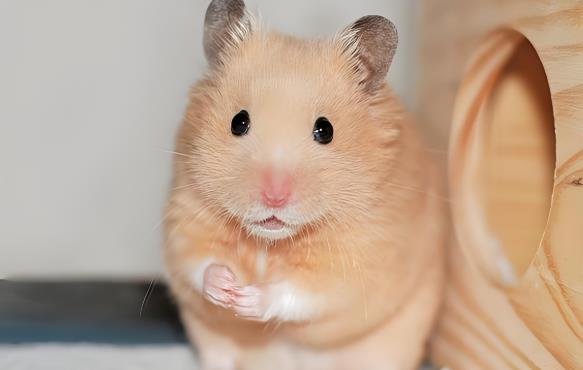Here’s a scientific care guide for dwarf hamsters, covering key husbandry points and health management:

I. Basic Housing Environment
Cage Selection
A cage of at least 60cm in length is recommended to provide ample space for activity. A running wheel with a diameter of around 17cm is ideal—larger wheels can lead to spinal injuries. Bedding should be layered at least 5cm thick; low-dust aspen shavings or paper-based bedding work well for absorption and odor control.
Temperature and Humidity Control
Maintain an environment temperature of 20-28°C, avoiding direct sunlight or strong drafts. In winter, increase bedding thickness and add a grass hut for extra warmth.
II. Diet Management
Staple Food Selection
Choose specialized dwarf hamster food (low-sugar, low-fat, high-protein) and avoid unbranded or unregulated products. Supplement daily with small amounts of fresh fruits and vegetables (such as diced carrots or apple pieces), no larger than the size of your thumb per serving.
Forbidden Foods
Do not feed seasoned human foods, unboiled water, or high-oil nuts (limit to 2-3 times a week at most). High-moisture fruits like watermelon can cause diarrhea and should be fed cautiously.
Water Requirements
Replace with boiled or purified water daily. Water bottles must be regularly cleaned and disinfected.
III. Daily Care
Grooming
Use specialized bathing sand for cleaning—never bathe dwarf hamsters in water, as it can cause severe stress. Change bedding 2-3 times a week; disinfect the cage with bamboo vinegar and ensure it’s completely dry before reuse.
Teeth Grinding and Exercise
Provide a chew stone or stick to prevent cage biting. Check the running wheel daily to ensure it spins smoothly.
IV. Health Monitoring
Common Ailment Treatments:
Diarrhea: Regulate with lactase tablets or Mamiai (a probiotic supplement).
Wet tail: Treat with enrofloxacin solution.
Prohibited Practices:
Housing multiple hamsters together (prone to fighting).
Forcing exposure to direct sunlight.
Using bamboo chopsticks as chew toys.
By following these scientific management practices, you can significantly improve the quality of life and lifespan of your dwarf hamster.
